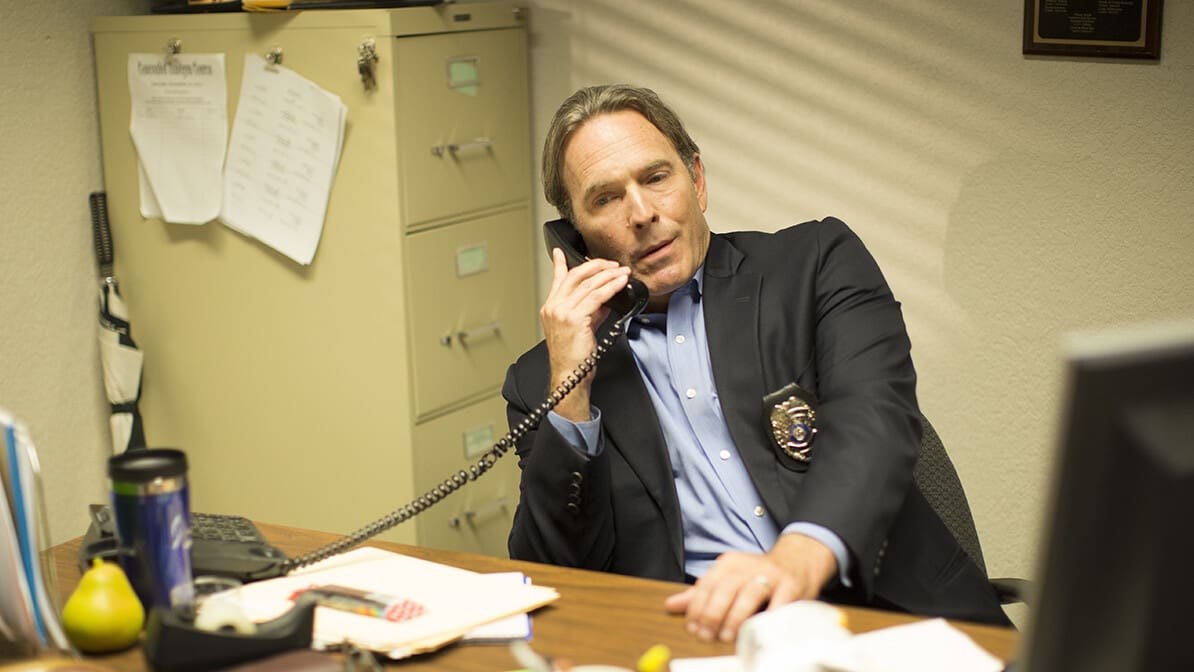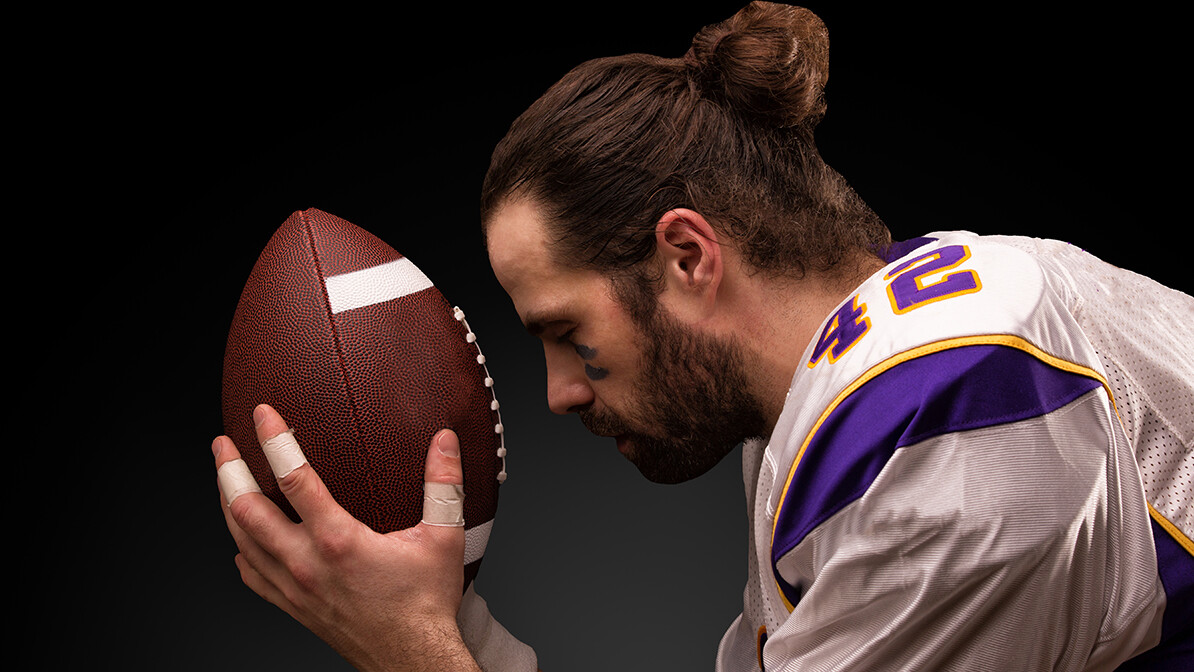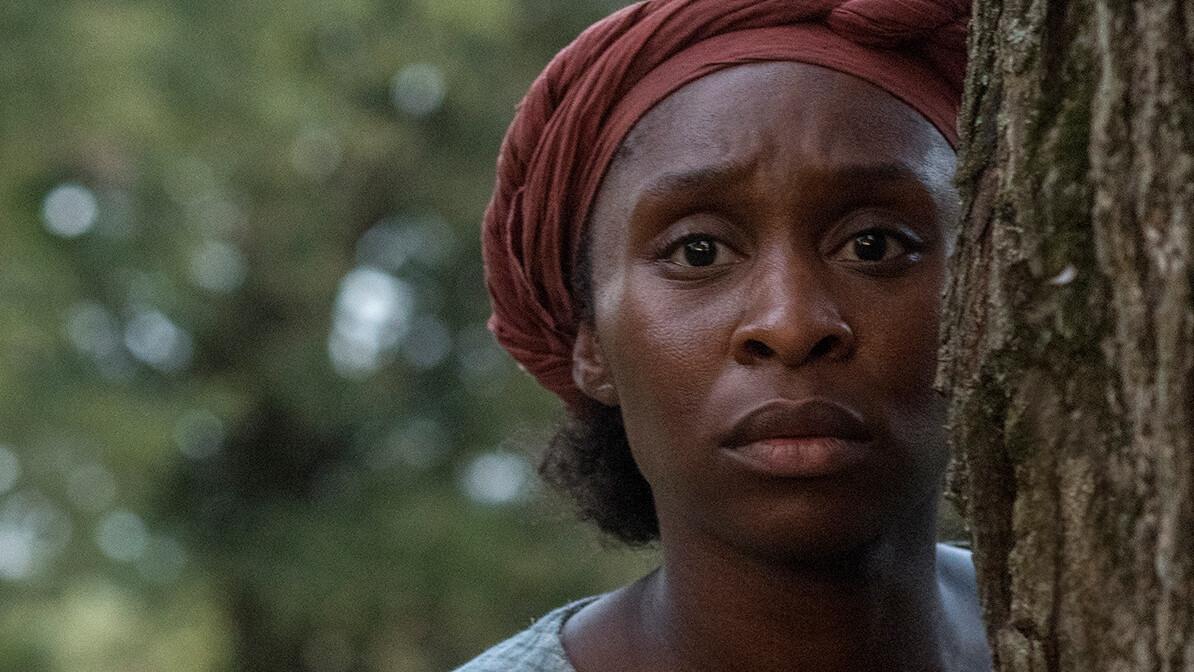- Home
- Entertainment
- Jarod O’Flaherty’s ‘Vindication’ Flips the Crime Scene Drama Formula on Its Head

Jarod O’Flaherty’s ‘Vindication’ Flips the Crime Scene Drama Formula on Its Head
John Farrell: Can you tell me about Vindication?
Jarod O’Flaherty: Vindication is a crime drama series that follows Detective Travis throughout ten episodes. Each episode he’s investigating a different case. It’s based in a small Texas town, while most crime drama series out there are in New York, Los Angeles, Chicago, or someplace similar. The show is based in a small town that makes up a big part of our country.
You get a different feel and different types of investigations than the shows you’re used to. That’s what makes it unique, but as the series progresses, you learn about the detective’s family, his work situation, and his personal faith and where that’s at and how it grows throughout the course of the season.
JF: What about this idea for a show was attractive to you?
Jarod: Wow! We didn’t start by saying, ‘Hey, let’s go make a ten-episode series. It actually started as a short film that ended up becoming Episode 1. My wife watches some crime scene dramas, but I really don’t. They almost all follow the same formula where at the beginning of the episode you see what crime is committed and then for the rest of the episode they go about solving it.
Each one of these shows, regardless of whether it’s “NCIS” or “Law & Order” or whatever, they almost all follow the same formula. For this original idea, it was like, why don’t we flip it on its head where you don’t really know what you’re about to see every time you turn on an episode. There’s not a formula of what’s going to happen, so it’ll keep you guessing. I hope that what will inspire audiences to keep watching is that suspicion or suspense of what’s going to happen. What’s going to be in the next episode? What’s going on here?
That part attracted me to it – giving audiences something that they aren’t familiar with as far as the formula is concerned and something that hopefully keeps them interested and wanting to know what happens next.
JF: Since it is a faith-based crime drama, how is that faith element woven into the overall storyline and plot?
Jarod: That’s a great question. We didn’t take the approach where each episode was going to be based on a biblical theme or a Bible verse or some message that we want to preach to the audience in that episode. Instead, we just wanted to tell real-world stories, but in a world where God exists.
In most of our entertainment, it seems like God doesn’t exist. If He’s there, it’s only in the procedural sense: go to church, say a prayer, bow our heads at the table. That sort of thing. Not that He is a living, active thing in that world, like how He really is in our world. That was the approach. We didn’t have this agenda for each episode, but rather, let’s see where God shows up in these circumstances.
One of our ways of telling that is that our primary detective’s faith is somewhat ambiguous. He’s not a believer. Instead of having our heroic main character be this believer who’s sharing his faith everywhere, he’s on the opposite side of that. He’s not atheist; he’s not against it. He’s just indifferent, which I think makes up a majority of our population of the unchurched – those who’ll bow their head during a prayer and go to church on Easter or Christmas, but that’s about it. So, we made him that character.
In each episode, you see the thumbprint of God show up in some form or fashion. Maybe it’s the person who’s accused, maybe it’s the victim, maybe it’s a family member. You see these thumbprints show up and you know. For keen audiences, I say, ‘Hey, that’s God working. That’s God doing something.’ As the season goes along, these things start to compound. Even the main character, Detective Travis, starts to think something’s going on here. How come every time I try to do something these things continue to pop up? It’s obviously God pursuing his heart and coming after him in different ways.
JF: Is that the overall message you want viewers to take from the show?
Jarod: I don’t know that we set out and said, ‘Hey, we want to go give a message to people.’ We want to tell stories that reflect our real world and in our real world God exists. I guess I just don’t like putting it in a box and saying, ‘We have this message that we want to get across to people.’
If there’s anything that I would like to see happen, I would like people to see it and see these little things. Hopefully, it reminds them of things in their own life where they can say, ‘Wow, maybe that was God saying something to me or doing something in my own life.’ Where they see the similarities between those two and it causes them to look further and deeper and reach out to God.
JF: The show addresses some heavy topics. Could you please provide me a little insight on some of those issues and how they’re addressed within the show?
Jarod: Sure. Each episode has one. We deal with teenagers and how they use social media and their phones and the type of content that gets passed between them, which is horribly prevalent in our society right now. That’s one issue we deal with.
There’s one that a lot of people call the trafficking episode. I don’t necessarily like that because I think everybody right now is trying to do trafficking episodes and movies and things of that nature. But the episode does deal with predatory behavior – predators that are online, which are very real. They get arrested every day in our country. How that interacts with the trafficking world and how it can cause those crimes to proliferate.
We have episodes on drug use, post-traumatic stress disorder, and one some would call bigotry or bullying. There’s a lot of things that get hit on in there all throughout, but I think they get treated in an organic manner.
Some people ask, ‘Is that the trafficking episode? Is that the bullying episode?’ I’m like, ‘No, it’s a story and that’s just an element of it.’ The episode that deals with teenagers and texting, it’s not the texting episode. There’s a lot deeper, bigger story going on there and that’s just a part of it. Yeah, those themes are definitely there and they’re a part of it, but it’s not like we’ve made a list and said, ‘Let’s tackle all of these issues.’
I think you’ll find in every episode that I just mentioned, the main story that we’re trying to tell is not about drug addiction. It’s not about bullying. It’s about deeper things than that and things of a spiritual matter.
JF: What was the hardest part of doing the show from a faith perspective?
Jarod: From a faith perspective, we want to tell hard-hitting stories. We want to make them very realistic, but at the same time, you don’t want to cause people to stumble. You don’t want to tempt people. You don’t want to cause problems.
I’ll give you an example. I did a screening once of several episodes and there were a couple of scenes that dealt with a website – a website that was a portal to criminal activity. Someone asked me at the screening, ‘Is that a real thing? How’d you come up with this?’ I was like, ‘No, not really. I’ve never heard of it. I’m sure it’s probably out there, but it was something we came up with for this episode.’ Afterward, a gentleman who was a Christian came up to me and said, ‘Hey, as a Christian, we shouldn’t be creating these ideas and putting them in people’s minds, especially if it’s something that doesn’t exist because maybe it does now because you created this.’
I responded very respectfully and I appreciate him sharing that, but there’s a line you have to walk. I want to tell realistic and engaging stories, but at the same time, I don’t want to do anything that as a believer I would be ashamed of or would regret later on. That’s tricky because everyone has a different standard for that. I just have to land at the spot that I’m comfortable with and if some people disagree, I have stick to it. It’s sometimes difficult to do that.
JF: Absolutely! The first episode won a couple of awards when it still just a short film. What were those awards for?
Jarod: Those awards primarily are tied to the first episode. We created the first episode to be a standalone film. That was the beginning and the end of the story. It did a festival run for about a year. About half of them were secular festivals and half were faith-based festivals.
As it ran through the festival circuit, it did get some awards. There were nominations for Best Actor, Best Actress, and Storyline. It won Best Short Film at a festival. Because of that, when we got to the end of the festival run, there were some people and companies that took notice of it and they were the ones who really promoted the idea of, ‘Hey, what if we turned this into a series?’
I was like, ‘What do you mean turn it into a series? It’s just this one episode.’ They’re like, ‘No, no, no. What about the detective? Could he continue and have additional cases?’ I was like, ‘You know, in the first episode, the primary character really is the subject being interrogated. His name is listed first in the credits. It was a story about him.’
I was like, ‘How could we turn this into a series because that guy’s situation has been resolved.’ They were like, ‘No, don’t follow him. Follow the detective.’ Those awards and recognition definitely got us to a place where we were having those conversations and seeing that there was an interest in going forward and turning it into a series.
JF: Were any changes made to the short film once you knew there would be a Vindication series and the short film would become the first episode?
Jarod: Nope. It’s the exact same as it was during that time. What I think is neat though is that looking at how the season now flows from one to ten and how that first episode is not really about the detective. It gives you a close-up look at his job. It’s almost like you’re seeing him from the other side of the table.
As the series goes on, you switch seats so that you’re on his side and seeing it from his world. I also thought that was a neat story-telling approach that at least in that first episode or two you’re seeing it from on the other side of the table. You’re being interrogated or you’re seeing him as this guy on the other side that’s doing the work. Then as the series goes on, you start following the detective.
JF: Please tell me a little bit about the cast and what the casting process was like.
Jarod: I could talk for a long time on this one, so I’ll try to hit just the highlights and you’ll see how organically this came together and how unconventional it was.
The very first person we got was Todd Terry. He plays Detective Travis. I was attending a Christian filmmaker meetup event in the Dallas-Fort Worth area and that night specifically was focused on acting. They had several guest speakers there who were Dallas-Fort Worth actors who were very accomplished. They had been in a lot of television shows and had been acting for ten or twenty years and they were just giving feedback. Todd was one of those guest speakers that night.
I’d never met him and I don’t know that I’d really heard of him before then. I was just an independent filmmaker at that time. I went up to him afterward and said, ‘How does somebody like me, this independent guy, get someone like you to ever come work on a project with me? They said I’ve got to have enough money. Do you want to see a resume? What gets someone like you to work with us?’ He said, ‘It’s all about the project. I have to take a look at it.’
He asked a little bit about what I had done and I told him some of the stuff I had in mind. We connected there. Once we started putting together the script for this crime drama, I was thinking of him the whole time because he was the only professional actor I knew. I was thinking, ‘This guy’s played a detective on TV and been in a bunch of shows. He’s local. I know him a little bit. I’ve talked to him. So, if I do this crime drama, maybe I can at least get one professional to be on set with us and it would be this Todd Terry guy.’
That’s how it happened. There was never an audition or anything. Here he is the leading character in Season 1, now going into a Season 2, and he never auditioned for me. I don’t know but I may have looked at his reel online or something, but it was just, ‘This is the guy.’ We were brought together and our paths crossed.
Venus Monique, who plays Kris Tanner, is his sidekick detective and kind of becomes the primary supporting character throughout the series. She was hosting a film festival in Austin that we attended for Vindication. She was a Texas actress and I didn’t really know many Texas actresses at the time. I introduced myself, got to know her, and we were invited back to that festival the next year for a repeat screening. Todd came that time and I told her, ‘If I get to keep doing more of these episodes, I’m going to create a character for you so that we can work together. She was, ‘Oh, that’s so nice.’ She tells a story that she didn’t expect it to ever happen, but she thought it was nice that we were going to try to create this character for her.
In the time between the festivals and her coming on board, we did a weekend short film that was just a fun project. She drove up on her own dollar, didn’t get paid, and acted in this short film in 110-degree Texas heat. That really made an impression on me that she would do that. That was Morning Rift. It’s on YouTube. We shot it all in one day. She came up participated in that and that really stood out to me like, ‘If you’re willing to do that when I get an opportunity, I want to put you in Vindication.’ That, of course, ended up being this large poster cover art role for her. She does a great job and going into Season 2, her role is just as big, if not bigger.
Peggy Schott, who plays Detective Travis’s wife, I also met at a festival. She was there for another film and I got to visit with her. In my mind, I was thinking, ‘You know what, if we ever saw this detective’s wife, I think this lady would be a perfect match for him. I just think it would work perfectly.’
Whenever I wrote, I would write in this role of his wife and the whole time in my mind it was Peggy Schott. She’s the only person we asked to audition for the part. It was perfect. That’s how she got there. I say all that to say that it was very unorthodox. For those three primary characters, there was no casting call, there was no, ‘Let’s look through twenty auditions and callbacks and all that.’ It was just, ‘These are the people we want to work with.’ It all came together and they’ve been great supporters of the show.
JF: What was the filming schedule like?
Jarod: We shot each episode over four days. So, it’s a pretty aggressive schedule. It’s about six to seven pages per day that we would shoot. Several days we’d be at multiple locations, so we’d shoot something in the morning, go somewhere else in the afternoon, and maybe even a third place in the evening.
I had a crew of about twenty-five people. It usually took about a month or two of pre-production to get ready for the episodes. We shot Season 1 over the course of about two years. It wasn’t like most TV shows where they get together for a month or month and a half and shoot the whole season. We would shoot one episode and then spend two months prepping for the next one and two months for the next one. That was primarily a financial thing depending on what resources we had available. We had to spread it out to put it all together.
JF: What has the reaction been like?
Jarod: We premiered the entire series on Amazon Prime. That was our first outlet. We wanted to see what would happen. You can go on there and there are almost 200 reviews from people and they’re not all my cousins and family members. (Laughs) In fact, I’m still trying to get most of them to watch it. For the most part, 95 percent of them are from strangers. I don’t know who these people are. You can go through and read the reviews and the most compliments I see are similar to ‘Finally, here’s a series that doesn’t have to be gratuitous in it’s content to tell hard-hitting stories. They have a faith element that is very organic. It’s not forced. It’s not fake. It’s not phony.’ People seem to really like it.
JF: Will there be a Season 2and, if so, when will it premiere?
Jarod: As of right now, we are starting production on Season 2. We’ve got some funding and the green light, at least for the first two episodes with good possibilities for the future. Obviously, this COVID-19 stuff has thrown a wrench into everything. We’ve felt the impact from that, but nothing has derailed or thrown it off track yet. It’s just a matter of some little delays and it’s actually given us time to get ahead on some things with additional scripts, preparations, and talking to some investors. Things of that nature.
As far as the release date, we don’t know that just yet. There is a possibility that we may release two episodes and then wait a while for the next two episodes or we release one and then another one – kind of a staggered approach.
JF: This may be too early, but is there anything you can share about what we can expect from Season 2?
Jarod: There’s a storyline that develops at the end of season one between Kris and Kevin who worked together at the police station. It’s one of the things that at the end of Season 1 that wasn’t resolved. You don’t know what happened there. So, we’re definitely going to pick that up in Season 2 so it won’t be abandoned. Both of those characters obviously are coming back and we’ll see what happens there. That’ll be a part of the storylines we go after.
JF: How did you get into filmmaking?
Jarod: The first thing I can remember as far as film making was that I did home videos from the time my family got a video camera when I was about 10 years old. I did a lot of home stuff. I wouldn’t really call that filmmaking. It was more pressing the record button and seeing what happens.
When I graduated from high school, that summer I went to a youth camp with our church and someone there had a video camera. He wasn’t doing anything with it, so I asked him if I could take it and run around and shoot video at camp. Then when we got back, I’d edit something together and we could show our church what went on at youth camp. They usually never see anything but pictures. So I edited it together in one weekend and then that Sunday night back at church, I got to show all of the adults and parents what went on for a week at youth camp.
That was really the first time I remember filming, editing, putting something together, and then showing it to an audience. That’s how I got into it and for the following ten to fifteen years, I would do similar things like that for youth events.
As my abilities progressed, I was like, ‘Let’s do a music video. Let’s have a band here at our church, put together a song, and we’ll edit some scenes to it and create a music video. Then it turned into, ‘Let’s do a documentary for Memorial Day.’ It slowly progressed like that until I got to the point that I was like, ‘I guess I am a filmmaker now.’
I’ve always thought I was just a hobbyist filling in and doing stuff for fun. But Vindication is a series and it’s in more than thirty countries and has been translated in six different languages and been watched hundreds of thousands of times.
JF: What is your personal testimony?
Jarod: Wow! I will tell you this, Episodes 1 and 2 were produced before we thought this was going to be a series. There are lots of elements in them that come from my personal testimony, especially Episode 2. I honestly just write things that happened in my life.
I became a Christian as a 16-year-old, a teenager in high school. It was at the end of a high school relationship and I was in a really dark place. And God got my attention, spoke to me, asked me to take a step of obedience, and I did. Everything He said and showed me came to fruition and I gave my life to him around that time.
So, yeah, there are definitely little elements from my life, like in Episode 1. When I was 16, I wasn’t a Christian. There was a girl I was interested in. I went to church with her, just because that’s what she invited me to do. I wasn’t there for anything about church. I was just there for her and to see where we go afterward.
That was the night God got my attention. The youth pastor, at the end of the service, asked me if I wanted to chit-chat for a few minutes. I said, ‘Sure.’ He and I talked and that was the turning point in my life. In Episode 1, Detective Travis ends up at a men’s Bible study. He was going to use it as an excuse to give his wife so that he could sneak away with a woman who he was having an affair with. Instead, he ends up in a Bible study and God shakes his world and gets his attention there.
Your intention was in one direction and then God shows up and something completely different happens. It was easy for me to write that story because it happened to me.
Trending Now
Sign up today for your Inspiration Today Daily Newsletter
Supercharge your faith and ignite your spirit. Find hope in God’s word. Receive your Inspiration Today newsletter now!
John Farrell
John Farrell serves as the Digital Content Manager at Inspiration Ministries, where he oversees the planning, organization, and management of website content to support the ministry's global digital outreach. With a strong background in writing and editorial strategy, John ensures that the articles, devotionals, and discipleship resources on Inspiration.org are accurate, engaging, and aligned with the ministry's mission.
John has authored more than 1,000 articles, press releases, and features for Inspiration Ministries, NASCAR, Lionel, and Speed Digital. His versatility as a writer is also showcased in his 2012 book, The Official NASCAR Trivia Book: With 1,001 Facts and Questions to Test Your Racing Knowledge.
A graduate of Appalachian State University, John brings excellence and attention to detail to the digital experience at Inspiration Ministries. He lives in Concord, N.C., with his wife and two sons.
Related Articles
March 10, 2025
Finding Total Victory on the Road to Championship
I have been playing competitive golf for 55 years. Through the various stages of my life, my…
March 7, 2025
Average Joe Movie: SCOTUS, Praying Football Coach Backstory
When Coach Joe Kennedy knelt to pray at the 50-yard line after a high school football game, he had…
February 28, 2025
The Power of Story: A Muslim Journey to Hope
Storytelling is one of the oldest and most powerful ways to touch the human heart. Parents tell…
February 27, 2025
‘Harriet’ Movie: Courage, Freedom, Faith
Antebellum abolitionist Harriet Tubman had convictions and courage that helped free herself…
Next Steps To Strengthen Your Walk
Inspiration Today Newsletter
Supercharge your faith and ignite your spirit. Find hope in God’s word. Receive your Inspiration Today newsletter now!
Christian Articles
Find articles to strengthen your walk and grow your faith. We have a wide range of topics and authors for you.
Submit A Prayer Request
We are here for you. Simply click on the button below to reach us by form, email or phone. Together we will lift our hearts and voices with you in prayer.





